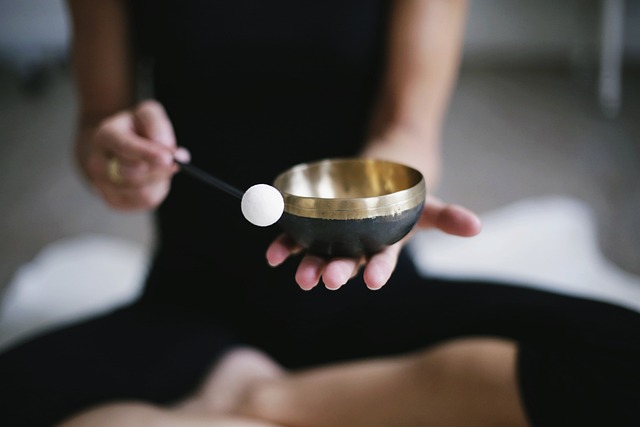The Power of Mindfulness
Introduction
In today’s fast-paced world, power of mindfulness achieving through sense of calm and inner peace has become more valuable than ever. Mindfulness, a practice rooted in ancient wisdom, has gained immense popularity in recent years for its ability to help individuals navigate the chaos of modern life while staying grounded and focused. In this comprehensive guide, we will delve into the world of mindfulness, exploring its benefits and offering practical tips on how to incorporate it into your daily routine.
What is Mindfulness?
At its core, mindfulness is the practice of being fully present in the moment, without judgment. It involves paying deliberate attention to your thoughts, feelings, and sensations as they arise, without trying to change or suppress them. Mindfulness encourages us to embrace each moment as it comes, fostering a sense of clarity and acceptance.
Types of Mindfulness: Power of Mindfulness
Mindfulness Meditation:
This is the most common form of mindfulness practice, where individuals sit quietly and focus their attention on their breath, bodily sensations, or a specific object. The goal is to observe thoughts and feelings without judgment.
Body Scan:
In a body scan, practitioners systematically bring their awareness to each part of the body, starting from the toes and moving up to the head. It helps in releasing tension and promoting relaxation.
Loving-Kindness Meditation (Metta):
Metta meditation involves sending feelings of love and kindness to oneself and others. It cultivates compassion and empathy.
Walking Meditation: Power of Mindfulness
This practice combines mindfulness with walking. Practitioners pay close attention to each step, their breathing, and the sensations in their feet as they walk slowly and deliberately.
Yoga:
Yoga is a mind-body practice that incorporates mindfulness. It involves physical postures, breathing exercises, and meditation to promote relaxation and flexibility.
Mindful Eating: Power of Mindfulness
When practicing mindful eating, individuals eat slowly and savor each bite. They pay attention to the taste, texture, and smell of their food, as well as their body’s hunger and fullness cues.
Mindful Breathing:
This simple practice involves focusing on the breath. Practitioners observe each inhale and exhale, using the breath as an anchor to stay present.
Mindful Listening: Power of Mindfulness
Mindful listening is about giving full attention to someone who is speaking without interrupting or formulating responses in your mind. It fosters better communication and empathy.
Mindful Journaling: Power of Mindfulness
Writing down thoughts and emotions in a journal with full awareness can be a form of mindfulness. It helps in self-reflection and understanding.
Mindful Coloring:
Coloring intricate patterns or mandalas while paying attention to each stroke and color choice can be a calming and creative mindfulness practice.
The Power of Mindfulness
1. Stress Reduction
One of the most significant advantages of mindfulness is its ability to reduce stress. By focusing on the present moment, individuals can break the cycle of rumination and worry that often leads to heightened stress levels. This practice helps in calming the mind and promoting relaxation.
2. Improved Mental Health
Mindfulness has been linked to improved mental health. Regular practice can reduce symptoms of anxiety and depression, providing individuals with a valuable tool to manage their emotional well-being.
3. Enhanced Focus and Productivity
In our increasingly distracted world, maintaining focus can be a challenge. Mindfulness training can sharpen your concentration skills, leading to increased productivity and efficiency in both professional and personal tasks.
4. Better Physical Health: Power of Mindfulness
Mindfulness isn’t just about mental well-being; it also has a positive impact on physical health. Studies have shown that it can lower blood pressure, improve sleep quality, and boost the immune system.
How to Practice Mindfulness
Incorporating mindfulness into your daily routine doesn’t have to be complicated. Here are some simple steps to get you started:
1. Find a Quiet Space
Choose a peaceful environment where you won’t be easily distracted. This could be a corner of your home, a park, or even your office during a break.
2. Set Aside Time: Power of Mindfulness
Allocate a specific time each day for your mindfulness practice. Whether it’s five minutes or thirty, consistency is key.
3. Focus on Your Breath
Begin by taking slow, deep breaths. Pay attention to the sensation of each inhale and exhale. If your mind wanders, gently bring your focus back to your breath.
4. Observe Without Judgment
As thoughts and feelings arise, acknowledge them without judgment. Imagine them as passing clouds, and then return your attention to your breath.
5. Gradual Progress
Mindfulness is a skill that develops with time. Be patient with yourself, and don’t expect instant results. Over time, you’ll notice a positive shift in your awareness and well-being.
Supporting the Journey
In conclusion, mindfulness is a powerful tool that can transform your life by reducing stress, improving mental and physical health, enhancing focus, and promoting overall well-being. Incorporating mindfulness into your daily routine can be a life-changing experience, allowing you to find tranquility amidst the chaos.
As you embark on your mindfulness journey, remember that it’s a personal path, and there’s no one-size-fits-all approach. Experiment with different techniques, and find what resonates with you. With dedication and practice, you can harness the incredible benefits of mindfulness and discover a deeper sense of inner peace.





You have mentioned very interesting points! ps nice internet site.Raise blog range